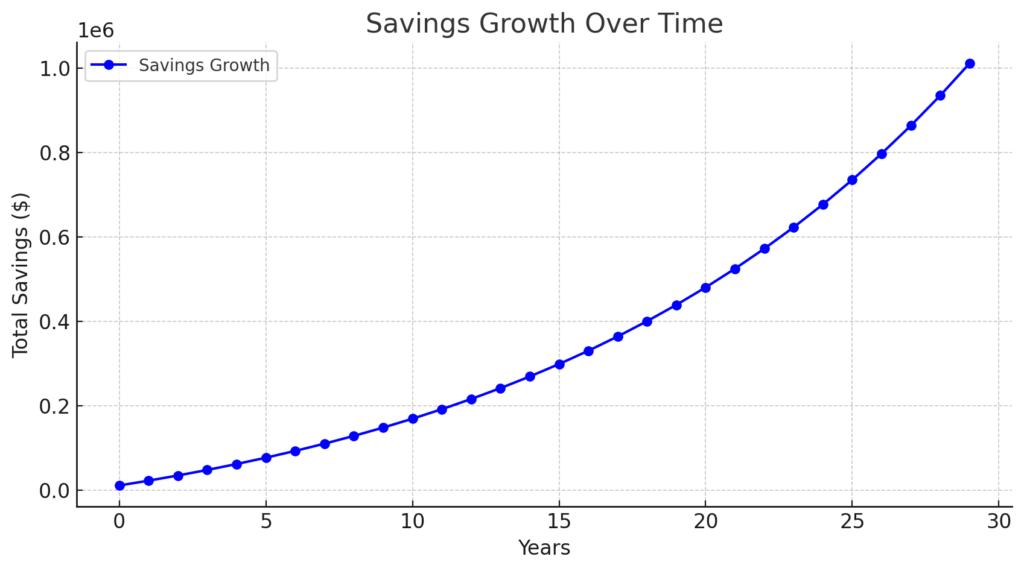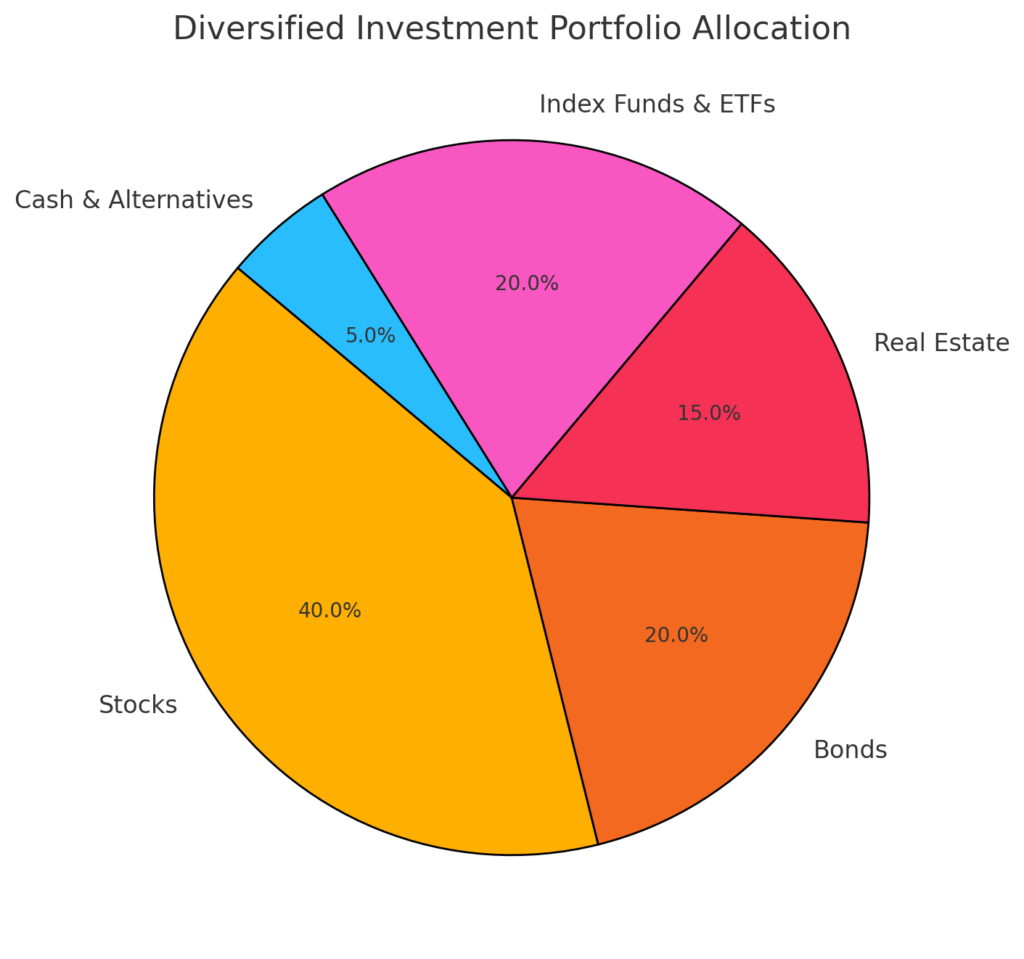What to include in your financial plan to achieve early retirement is a question that many people ask but few truly plan for effectively. Imagine waking up every day without the pressure of a 9-to-5 job, having the financial freedom to travel, pursue passions, or simply enjoy life on your terms. Achieving early retirement isn’t just about saving money—it’s about creating a strategic financial roadmap that allows you to live comfortably without worrying about running out of funds.
In this blog, we’ll break down the essential elements of a well-structured financial plan, from setting clear retirement goals and maximizing savings to building a strong investment portfolio and managing expenses wisely. Whether you’re just starting your financial journey or looking to fine-tune your strategy, this guide will provide you with actionable steps to fast-track your early retirement. Let’s dive in and build a financial future where work becomes optional, not necessary.
Table of Contents
Importance of a Financial Plan for Early Retirement
A financial plan provides a structured roadmap to ensure you achieve early retirement without financial stress. It helps track your income, savings, and investments, allowing you to adjust as necessary to meet your retirement goals. Without a plan, unexpected expenses or financial mismanagement could significantly delay your retirement timeline.
A well-developed financial plan answers critical questions such as:
- How much money do you need to retire early?
- What savings strategies will help you reach that goal?
- How will you generate income after retirement?
Table: Key Benefits of a Financial Plan
| Benefits | Description |
|---|---|
| Clear Retirement Goals | Helps define a timeline and savings target |
| Efficient Budgeting | Ensures disciplined spending habits |
| Risk Management | Prepares for unexpected expenses |
| Wealth Growth | Maximizes investment potential |
Setting Clear Early Retirement Goals
Setting financial goals is the first step toward early retirement. Define your target retirement age and the amount of money required to sustain your lifestyle post-retirement. Break these goals into smaller milestones to track progress effectively.
Steps to Setting Retirement Goals:
- Identify your ideal retirement age
- Calculate expected annual living expenses
- Determine necessary savings to cover expenses
- Establish additional income streams (e.g., investments, passive income sources)
Creating a Robust Savings Strategy

Establishing an Emergency Fund
Having an emergency fund ensures that unexpected expenses do not disrupt your retirement savings. Financial experts recommend saving at least 6-12 months’ worth of expenses to cover sudden financial needs.
Maximizing Retirement Accounts
Contribution Recommendations:
- 401(k): Contribute at least up to the employer match to take full advantage of free money.
- IRA & Roth IRA: Use these tax-advantaged accounts to diversify retirement savings.
- HSA (Health Savings Account): Offers triple tax benefits, making it a great retirement healthcare tool.
Automating Savings
Set up automatic contributions to your retirement accounts and investments to ensure consistent progress toward your savings goal.
Building a Strong Investment Portfolio
Investing is crucial for wealth accumulation and financial security in early retirement. A well-balanced portfolio reduces risk and provides consistent returns.
Ideal Investment Portfolio for Early Retirement
Diversified Portfolio
|
-------------------------------------
| | | |
Stocks Bonds Real Estate ETFs & Index Funds
| | | |
High Growth Stability Passive Income Low-cost DiversificationPassive Income Streams
Generating passive income ensures financial stability without the need to work actively. Here are some reliable passive income sources:
- Rental Properties
- Dividend Stocks
- Peer-to-Peer Lending
- Digital Businesses (e.g., blogs, affiliate marketing)

Reducing Debt for Financial Freedom
Prioritizing High-Interest Debt
High-interest debt, such as credit card balances, can delay early retirement. Prioritize these debts to free up more capital for savings and investments.
Mortgage Payoff Strategy
Consider paying off your mortgage before retirement to eliminate major monthly expenses.
Budgeting and Expense Management
Use budgeting apps like Mint or YNAB to track spending habits and ensure you’re saving enough for early retirement.
Budget Breakdown Example:
| Expense Category | Monthly Budget |
| Housing | $1,500 |
| Groceries | $500 |
| Healthcare | $400 |
| Entertainment | $200 |
| Travel | $500 |
Understanding Tax Strategies for Early Retirement
Minimizing Tax Liabilities
- Roth Conversions: Convert traditional IRA funds into a Roth IRA during low-income years.
- Capital Gains Management: Plan asset sales strategically to reduce tax impact.
- Tax-Advantaged Accounts: Maximize contributions to tax-free and tax-deferred accounts.
Healthcare Planning for Early Retirement
Health Insurance Considerations
Healthcare costs can be significant in early retirement. Consider:
- Employer-provided retiree health plans
- ACA (Affordable Care Act) marketplace plans
- Health-sharing networks
Planning for Inflation and Longevity Risks
Inflation erodes savings over time. Consider:
- Investing in Treasury Inflation-Protected Securities (TIPS)
- Adjusting withdrawal rates based on market conditions
Estate Planning and Wealth Transfer
Creating a Will and Trust
Ensure your assets are legally protected and distributed according to your wishes.

Appointing Power of Attorney
Grant financial and medical power of attorney to trusted individuals in case of emergencies.
Conclusion: Take Charge of Your Financial Future
Achieving early retirement is within reach with careful planning and disciplined financial decisions. By setting clear goals, managing expenses, reducing debt, and investing wisely, you can secure financial freedom. Start today by automating your savings, diversifying investments, and optimizing tax strategies.
What’s your biggest challenge in planning for early retirement? Share your thoughts in the comments below and check out Forbes Financial Planning for more expert insights.
Stay consistent, stay informed, and take charge of your financial future!




